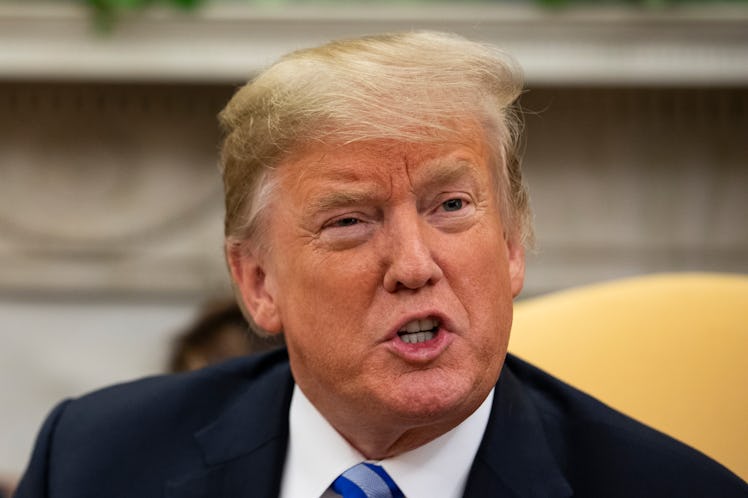
The Trump Administration Is Moving To End Limits On Detaining Migrant Children
Over the last few months the country has been witness to the separation of children from their parents at the southern border under President Donald Trump's administration's "zero-tolerance" immigration policy. Although it was the piece of the policy that prompted the most outrage, families being separated was actually a byproduct of the policy, thanks to a legal restriction which limited the amount of time children can be detained. But now, that policy could be on the line. So, will Trump end the Flores agreement on migrant children? The administration is trying to pull out of this longstanding agreement which could result in children being detained indefinitely.
According to a Department of Homeland Security announcement on Thursday, Sept. 6, the Trump administration is planning to pull out from the Flores agreement, a legal ruling that has been a major sticking point in the Trump Administration's "zero-tolerance" immigration plan, altogether. The 1997 ruling required the U.S. government to detain migrant children in the "least restrictive" manner, and in 2015 was modified to include that migrant children couldn't be detained for more than 20 days with or without their families. The policy was stumbling block for the "zero-tolerance" policy, which required all adults crossing the border illegally to be prosecuted, separating parents from children since the children were prohibited from going through adult detention proceedings. The family separations were ended after intense public criticism. But in recent months, the administration has been attempting to end the Flores agreement and allow children to be detained with their families, so the the administration can continue prosecuting the adults.
The announcement from the Departments of Homeland Security (DHS) and Health and Human Services (HHS) said that to replace the Flores agreement, the departments will issue new sets of regulations that “satisfy the basic purpose” of the Flores agreement and make sure that the children “are treated with dignity, respect and special concern for their particular vulnerability as minors.” The proposed new rule would codify care for child migrants in "licensed facilities or facilities that meet ICE’s family residential standards," while allowing the DHS to "[regain] control over the border."
A DHS spokesperson tells Elite Daily on Sept. 6 that the department is not holding children indefinitely, but only with family units until their cases are ruled on.
The Trump administration does have the authority to propose regulations in place of the Flores agreement, but that doesn't mean that it will necessarily go through right away. According to The Washington Post, the administration will likely have to battle it out in court with U.S. District Court Judge Dolly M. Gee, who presides over the Flores agreement. Courts aren't the only barrier, either — there's also a 60-day period in which the public can comment on the proposed change, and then another 45 days in which the Flores counsel in charge of protecting detained migrant children can challenge the proposal in court.
DHS Secretary Kirstjen Nielsen said in a Sept. 6 statement that "legal loopholes" interfere with DHS' "ability to appropriately detain and remove" migrant families, and the proposed new rule would fix that. She said,
Today, legal loopholes significantly hinder the Department’s ability to appropriately detain and promptly remove family units that have no legal basis to remain in the country. This rule addresses one of the primary pull factors for illegal immigration and allows the federal government to enforce immigration laws as passed by Congress.
DHS officials claim that the Flores agreement promotes illegal immigration by making undocumented immigrants with children less scared to cross the border because they know they'll be released quickly, according to The Washington Post.
The Flores agreement put significant restrictions on what the administration was able to do in terms of detaining undocumented immigrants, but this could change things significantly. We'll see what happens.